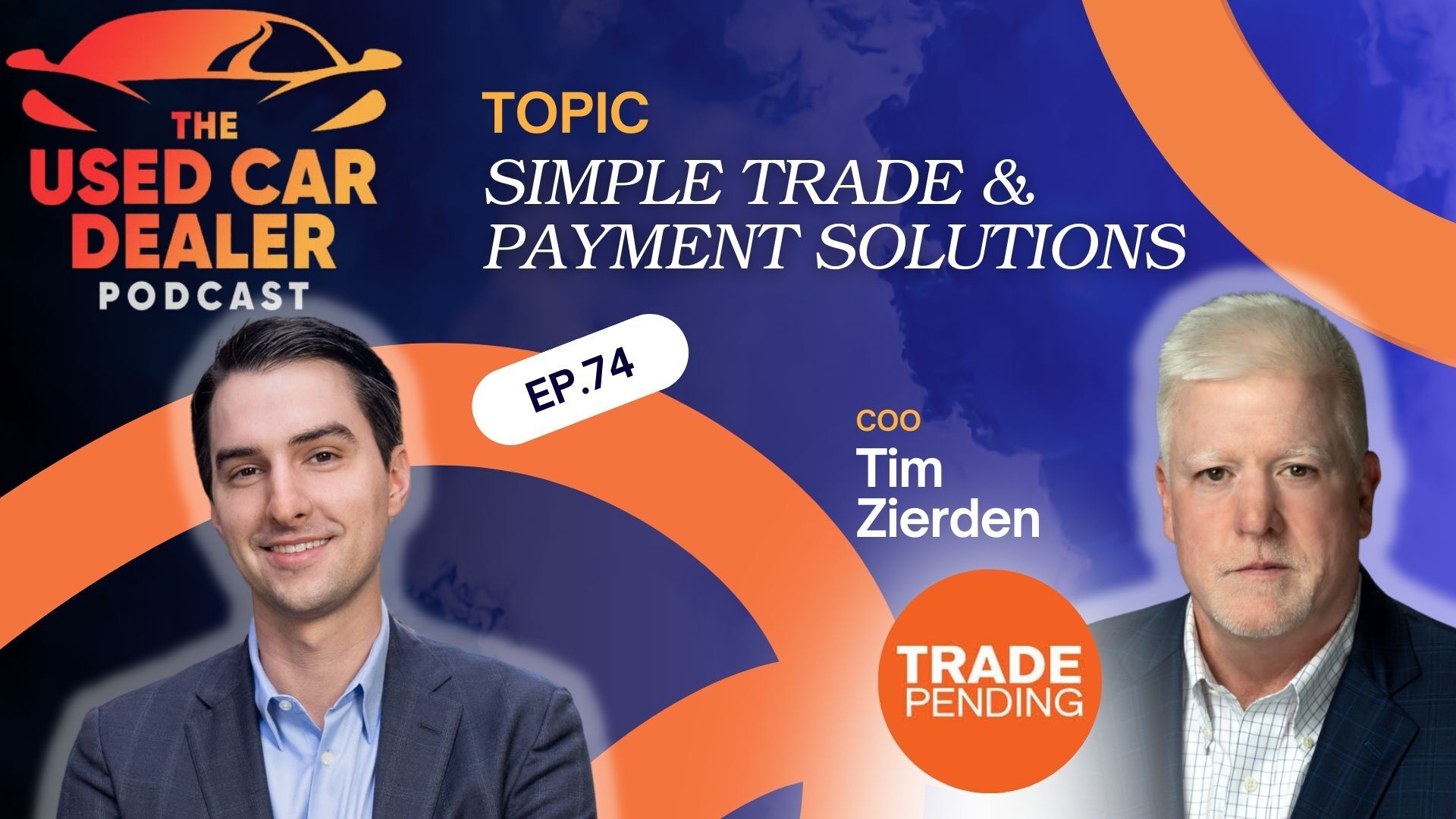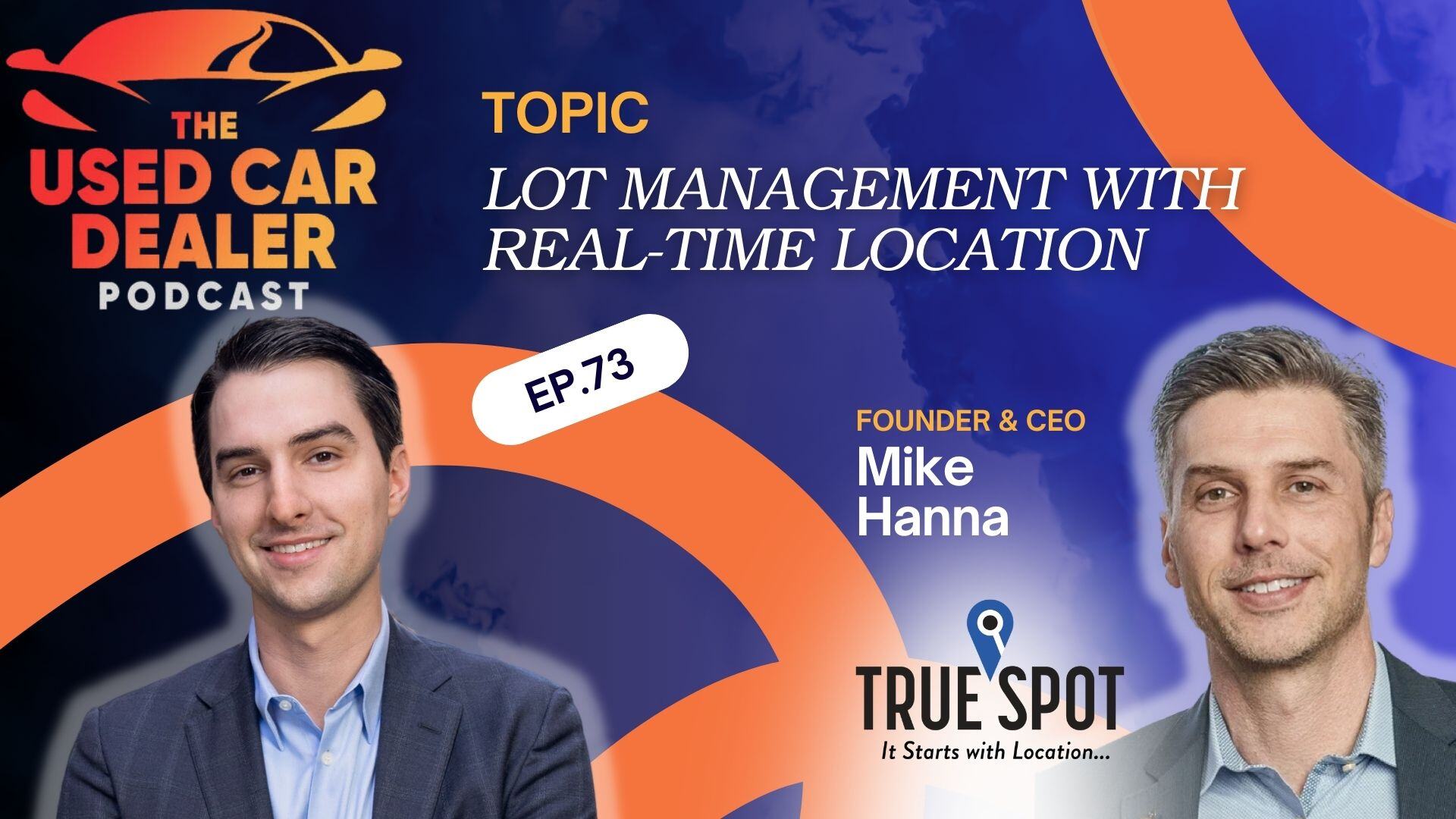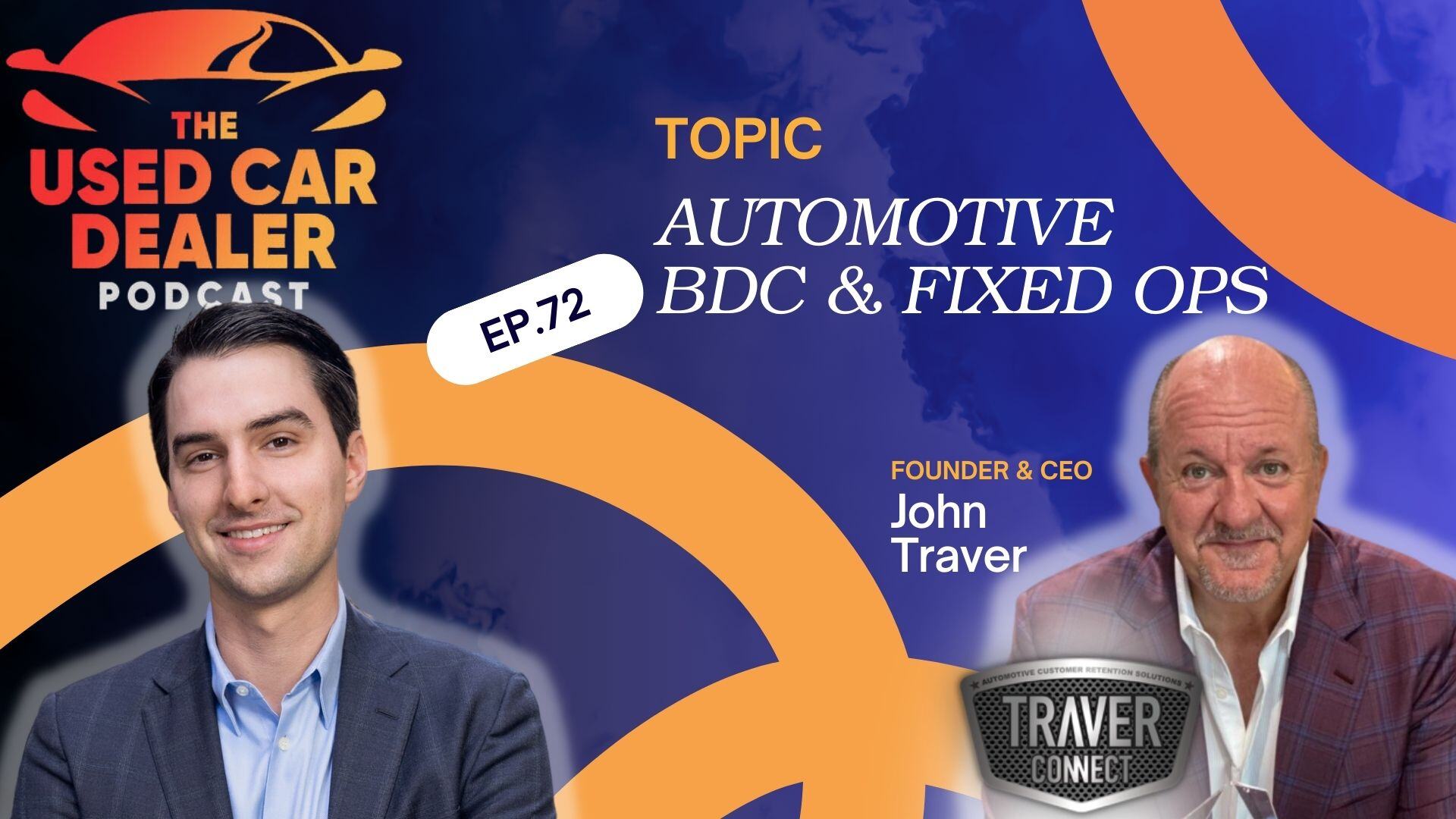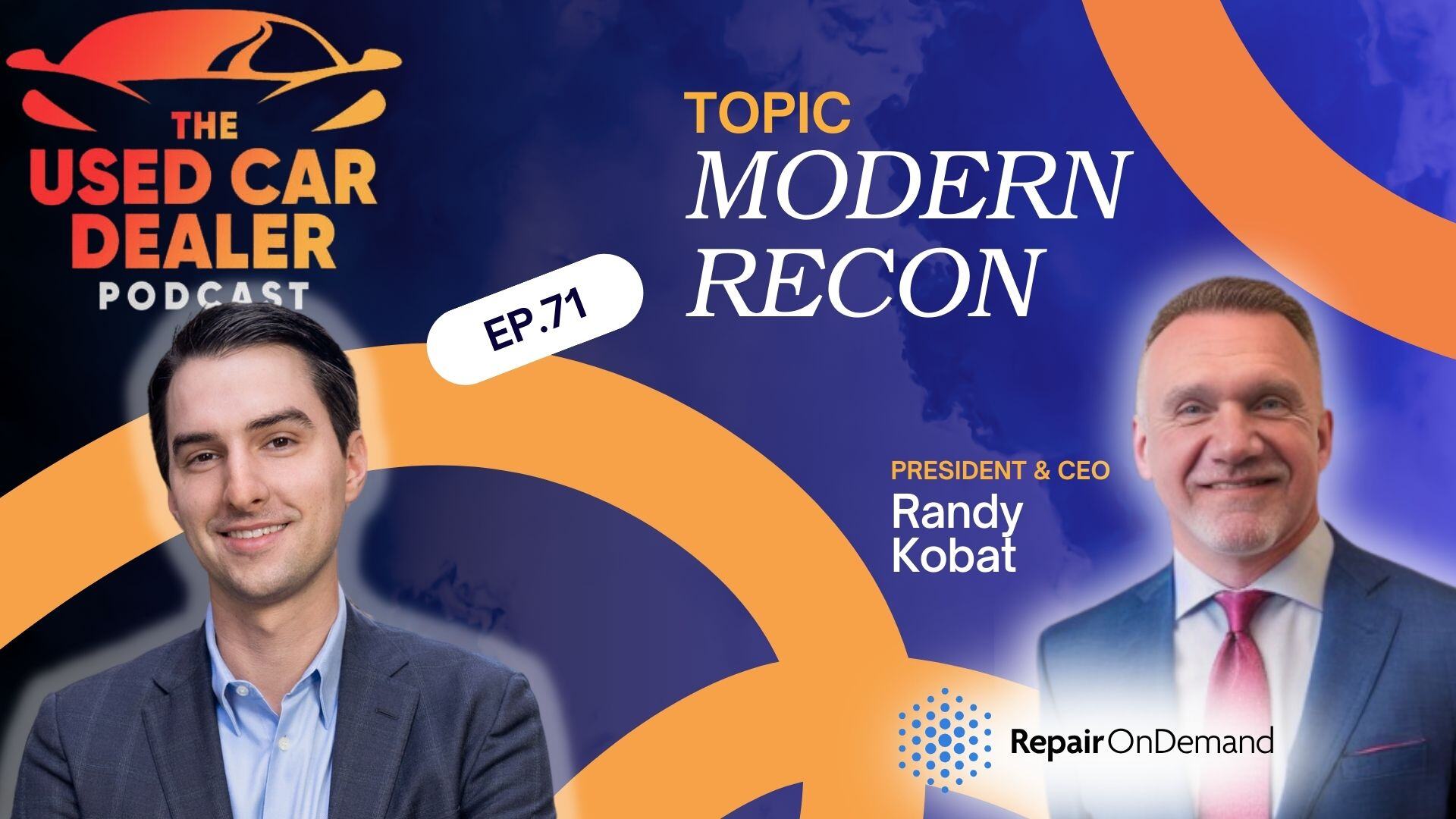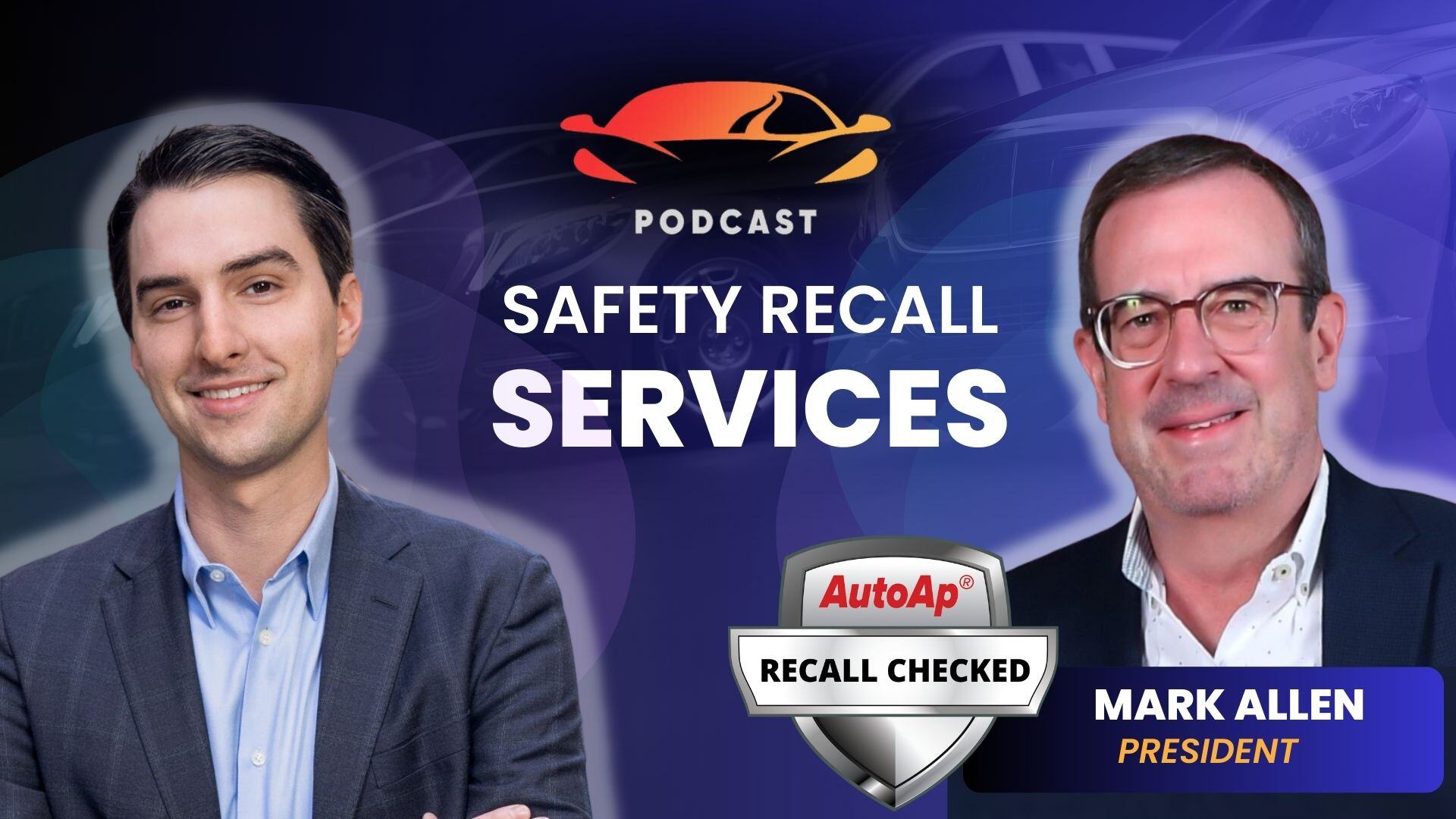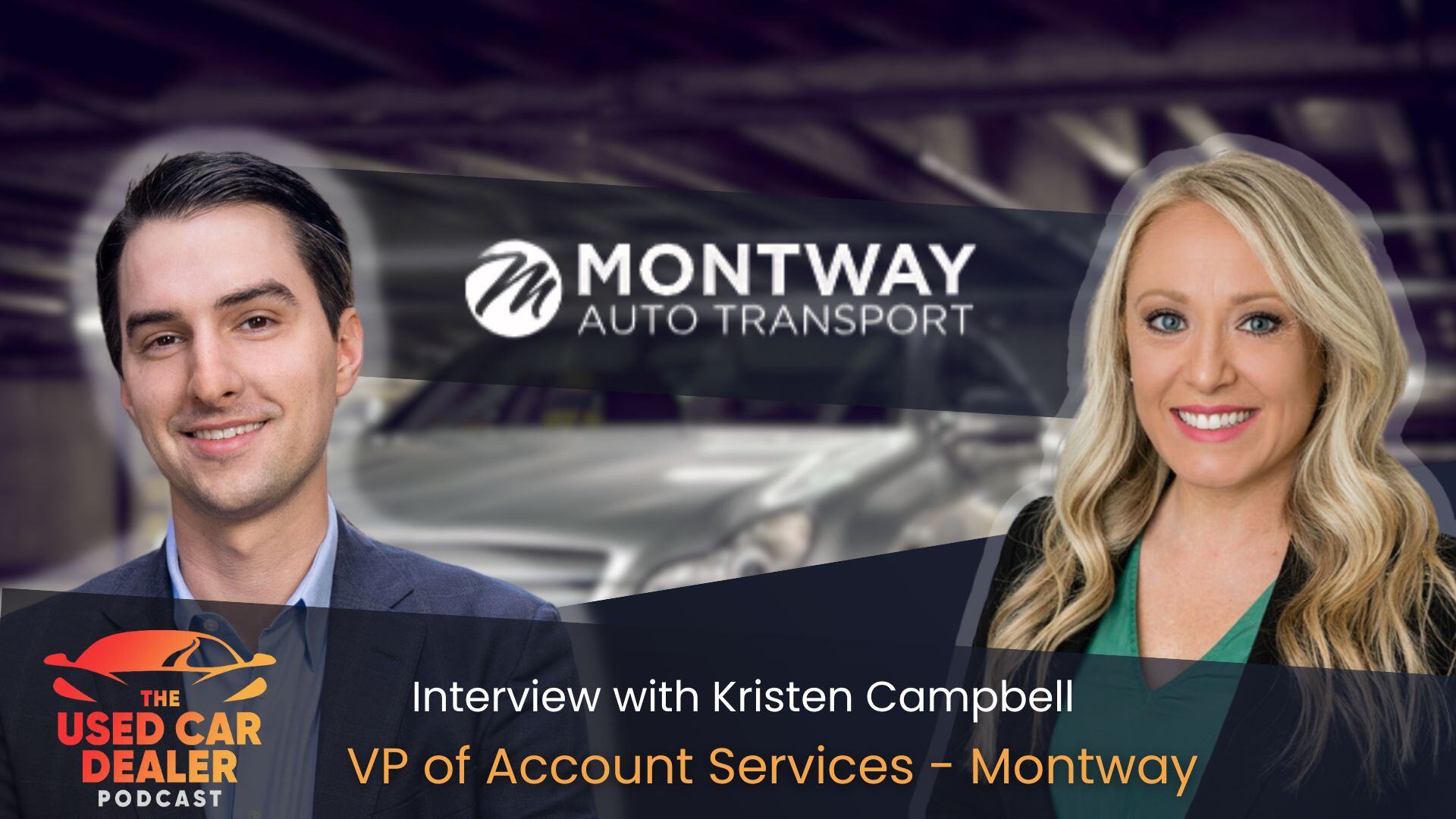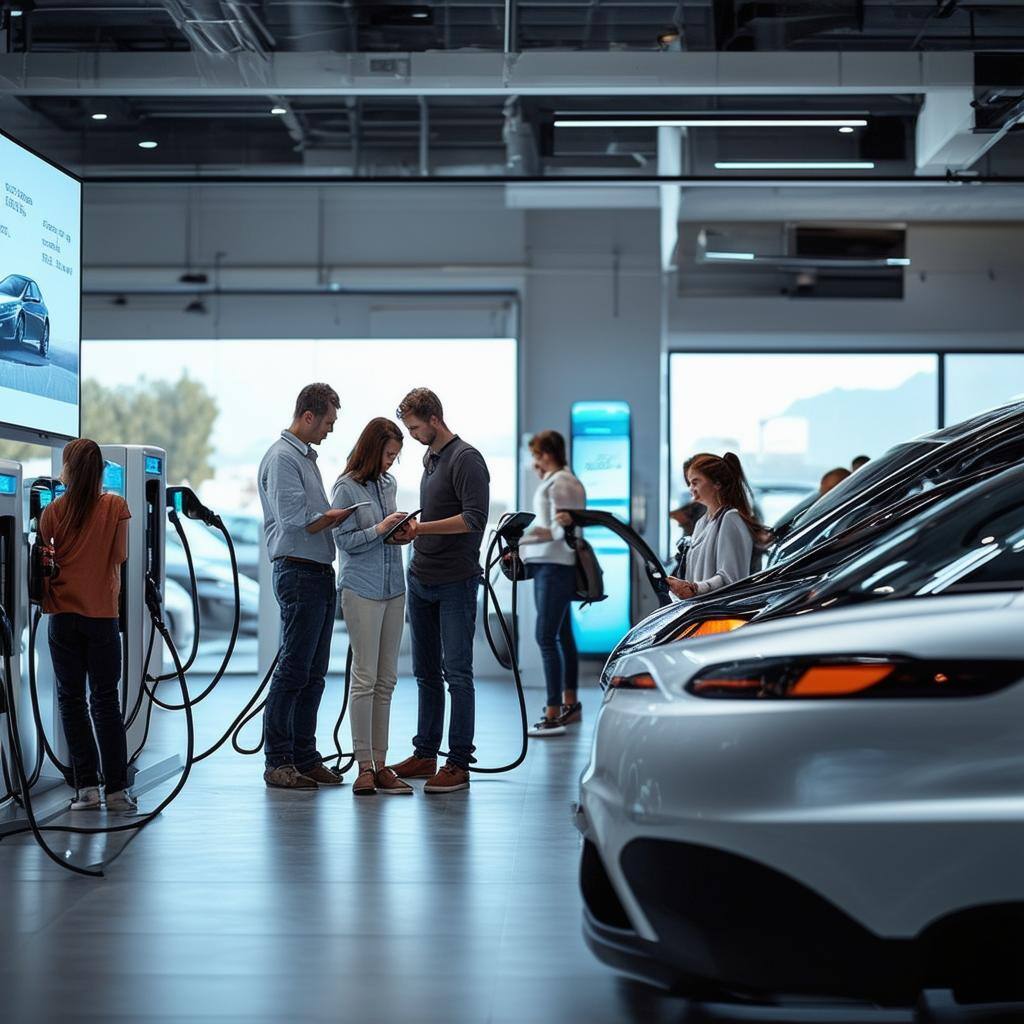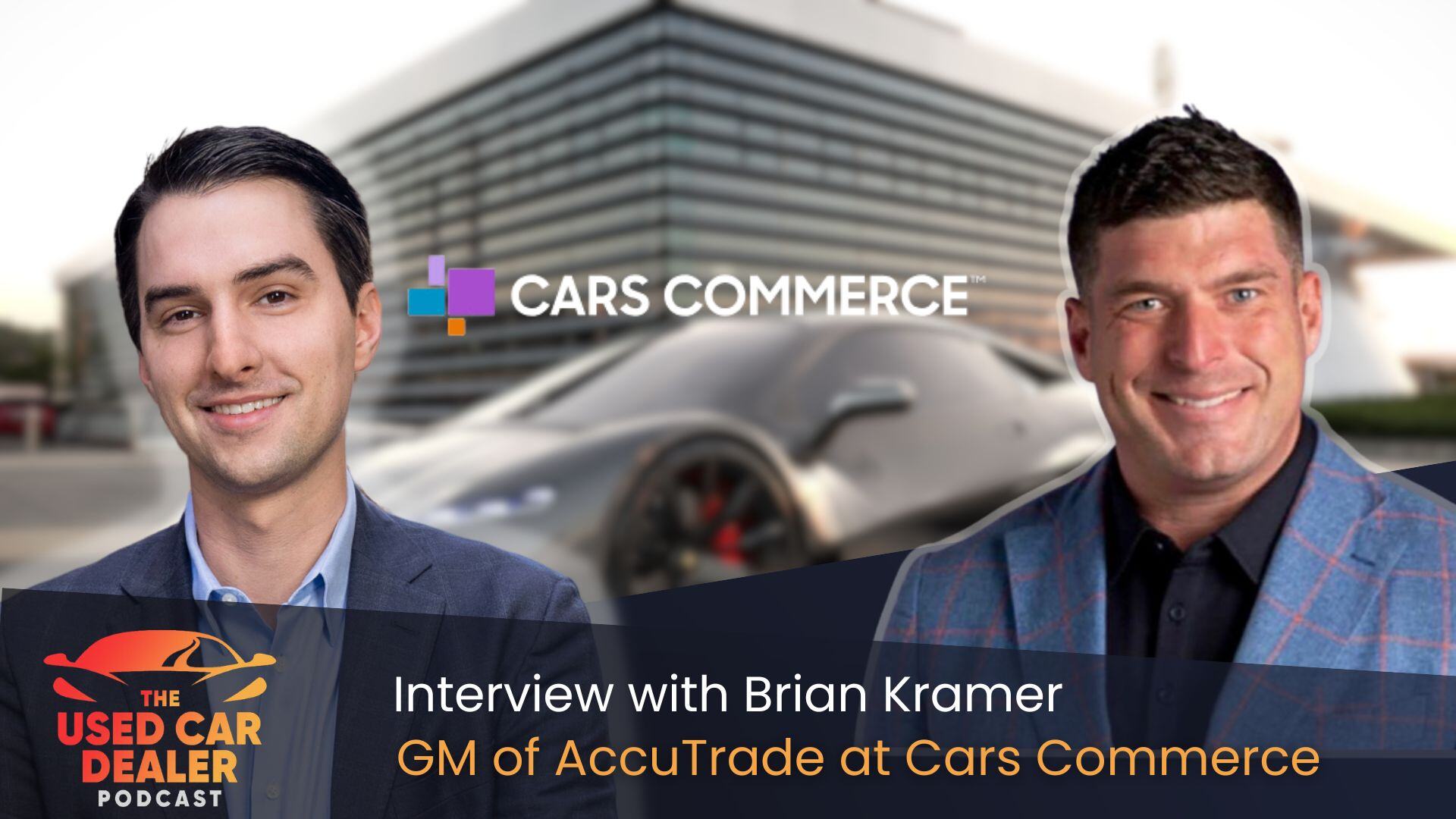In this transcribed episode of the Used Car Dealer Podcast, Zach interviews Dale Pollak, the Founder of vAuto and one of the most well-known speakers and authors on inventory management. They discuss used car inventory management, trends, challenges, opportunities, and other related topics for used car dealers.
Zach: Zach here, and we have a legend on the podcast today. Dale Pollack, the founder of vAuto and one of the most well-known speakers and authors on inventory management in the used car industry. Dale, thanks so much for joining us on the podcast Again
Dale: Good to be with you, Zach.
Zach: I'm sure many of the dealers listening have heard about your background, but for those who haven't, tell us a little bit about yourself and the founding of vAuto
Dale: I grew up in the automobile business as my father owned the Dorado auction in Dyer, Indiana, many years ago. He was a used car dealer who also sold Buick, Volkswagen, Porsche, and American motors. Since then, I've worked in the business for most of my young life. After graduating from college, I joined my father's Buick dealership in Gary, Indiana, while attending law school at night. Eventually, my father and I purchased a Cadillac dealership in Elmhurst, Illinois, and added GMC trucks. We operated the dealership throughout the mid-eighties and into the late nineties.
At some point in the late nineties, I became interested in automotive technology and joined a small company called Digital Motor Works in Austin, Texas. We extracted information such as inventory, sales, and service records from dealerships and put them electronically into the burgeoning internet on sites such as cars.com and Autotrader. We also provided service and sales data to companies like AutoNation. Our little company grew and became quite successful, ultimately being acquired by ADP, now known as CDK.
I was required to stay with the new acquirer for three years, but they fired me after only a year. I was in a difficult situation as we had sold our dealership in the process, leaving me without a job. I had to come up with something to support my young family, so I decided to create a small startup company that would focus on changing the way dealerships sold vehicles through the internet. The internet was clearly the reference point, and dealerships would have to be very price-conscious about what they paid for vehicles and how they priced them.
My startup ultimately grew into vAuto, which was later acquired by Autotrader, a part of Cox Automotive. I've been working hard with Cox Automotive, creating a variety of new solutions, and 12 years after the acquisition, I'm still here, more energized and enthused than ever to continue making meaning in the automotive universe.
Zach: Wow! Such an impressive story. And talk about the evolution of the vAuto products set from the vAuto product you founded, kind of, in the early days to what is now a suite of products today, including global acquisition system, inside ProfitTime GPS.
Dale: Right. I think it's first important to understand that the only thing that ever creates sustainable performance improvement in any business, and certainly a dealership, is not software. It's a strategy - a proper strategy that's well executed. So, it's a proper strategy, people, and process. When I originally created the auto, it was really a challenger strategy to how new vehicle departments were managed. That strategy, we called velocity management, and we built software that was purpose-built to support behaviors consistent with velocity management. At the time, it was not the norm, and it was not initially well accepted. But ultimately, because it was the right way to think about doing better in the business, it grew and caught on, and the success of the company was really quite great.
However, around 2017, I began to suspect that perhaps the velocity method of management had run its course and was no longer serving the interests of dealers or the industry at large. That was a pivotal point for me because I owe everything I have to having been a dealer and to dealers who have supported my solutions in the years since. If I'm not going to be able to help them, I'm certainly not going to stick around and sell them something or propose something that's going to hurt them. So I gave serious consideration to riding off into the sunset and retiring. I had since sold the company to Cox some years earlier, and I was in a position to do that.
But before I was willing to write off, I felt a commitment to Cox and to my fellow employees and business partners, and most importantly, to the dealers who put their faith in me, to see if there wasn't a better way forward. And I honestly didn't believe we'd find a better way forward, but we did. And that's why I'm still here, and that's called variable management, and it's supported by new software that we call Profit Time GPS. I'm really, particularly perhaps most proud of that pivot, that transition, because we all know a lot of once-great companies, like the Kodaks, and the Blockbusters, and the Borders Books that are no longer around or no longer relevant. The reason being is that they had built a business on a certain product or service that, at the time, was probably right.
But, you know, the environment changes, and the world changes, and for a variety of reasons, they weren't able to change with it. And, I understand how hard that is, but we sought a new path forward, all the while knowing that if we were successful with the new path, it would likely be extremely disruptive to our current business. Yet, I was able to garner the support of Cox Automotive to do that and our team members, and that's what we're in the process of doing. And, I know that eventually, every dealer in the country will adopt variable management, as was the case with velocity management.
The reason I'm so confident of that is that it's just so rational. It's just so rational that I think that once dealers come to understand what it is, it's hard to imagine them saying no, I'm not going to manage differently in this way.
Zach: Very impressive pivot! It's almost like when Netflix went from DVDs to streaming, you know, in a sense. When I was at NADA this year, I sat in on one of your presentations. Tell me about what you heard at the show and what's top of mind for industry movers and shakers like yourself as it relates to the used car industry.
Dale: This was my 54th consecutive NADA convention, with the exception of the COVID clause. Suffice it to say, I've seen a lot of NADA conventions. And I would say that this past year's convention was characterized by a lot of optimism and buoyancy on the part of dealers. They have come off a couple of really great years in 2021 and 2022, and that showed up in Dallas this year.
I believe there is a lot of good reasons for optimism. However, I think that the more enlightened perspective of this coming year, and perhaps some years to follow, is that it's going to be more challenging. There are definitely some forces at play in the industry that are challenging news vehicle sales, not at the moment, interestingly, but I believe that we're already beginning to see some signs that some of these forces are coming to be.
I think that it's going to be a bit tougher than perhaps many dealers expect or hope, and I'm not saying it's going to be bad, although anything can happen. But I think that the optimism that I saw at the convention in Dallas may be a bit more muted at next year's NADA convention.
Zach: So speaking of that, what factors have contributed to the recent strength in used vehicle sales and why is that data kind of a head-scratcher?
Dale: Typically, January and February are not strong months for used vehicle sales. However, this year, they have been pretty good, not great, but pretty robust. The high interest rate environment makes this a little confusing. For instance, the average customer payment on a used vehicle this year is up $123 compared to last year, with an additional $500 down payment. So, that's a lot of stress. So, one might question why used vehicle sales are strong in light of this high interest rate environment.
I think there are two answers. First, last year, used vehicle values saw a decline, with wholesale values falling just shy of 20%. As a result, the affordability issue started to ease by the end of the year and coming into this year, the affordability of these vehicles has gotten a little better. Second, we are experiencing an early spring tax bounce, with refunds issued 65% ahead of what they were at the same time last year. While the actual amount of the refund is anywhere between 11 to 14% lower, more refunds have been issued. Whenever money flows from the government, a certain amount of it will end up in the automotive industry. So, I think that the combination of ease of affordability and early tax refunds are the contributing factors to the strength of used vehicle volume in the first couple of months.
However, higher interest rates will certainly affect the market in the near future. The Federal Reserve will have an open committee meeting in March, May, June, and July, and it's almost certain that they will raise rates in each one of those open committee meetings. Some believe that in the March meeting, there might even be an increase of half a point. This will filter into used car loans, and the average used car interest rate on a retail installment loan is about 13 and a quarter percent, which is up substantially from January and will only continue to rise. Whenever interest rates rise, they will have a dampening effect on used vehicle volumes.
Other factors are likely to affect used vehicle sales in the future. For example, if we are experiencing a bounce from early tax refunds, the peak of those refunds will come sooner than it traditionally does. At some point, and it's unknown when, perhaps around April, we will have seen or even surpassed the peak of refunds. When government money slows, it's likely to have a dampening effect on used retail sales volume. Additionally, new vehicle inventory is building, and as inventory builds, incentives will also grow. We have seen incentives build steadily since the beginning of the year, and they're likely to continue to grow as inventories grow. When the manufacturer begins to incentivize the new vehicle to a greater extent, it's going to transition some of the demand from the white model used to the new.
In conclusion, the three Rs (rates, refunds, and rebates) are forces at play that will likely suppress used retail volume into the latter spring and summer and perhaps the rest of the year.
Zach: And has your view of inventory management changed kind of as we're getting into the post pandemic times?
Dale: Well, yes and no. There are certain aspects of inventory management that I think are universally relevant. One is not stocking more vehicles than you sell in a 30-day period. Many dealers believe that they have to stock cars to sell more cars, and that is absolutely not correct. You can sell more cars with your in-stock if you are better at pricing, stocking, and reconditioning. It's really a crutch or perhaps the sign of a weak dealer that says they have to stock more cars. What it does is excuse a lot of operational inefficiencies that, if addressed, would help dealers do more with less. I believe that one thing that hasn't changed about inventory management is the prudent advice to keep roughly a 30-day supply measured against your rolling 30-day sales total.
What has changed in used car management, or should change, is the strategy that dealers pursue for success. More specifically, I'm talking about the strategy of transitioning from velocity management to variable management. If you really think about what velocity management meant, if you boil it down, it really said to dealers, price all cars as competitively as you can, as fast as you can. For a more extended time, the better. And at some level, you would say, "Well, what could be wrong with that?" Well, number one, nothing until everybody does it. And then it becomes a race to the bottom. But another thing that we now know about velocity management, due to the benefit today of data science and discovery, is that not all cars are the same. A one-size-fits-all approach, which velocity was, no longer gives dealers the opportunity to optimize the potential of every vehicle. If you take the same approach to every vehicle, it assumes that every vehicle holds the same potential when, in fact, we know that they don't. So variable management, hence the name, variable management, has been created based on data science and discovery that today allows us to better understand the inherent potential of each individual vehicle. Once you understand the inherent potential of each individual vehicle, you can take a varied approach to managing each vehicle in terms of your expectation of how long it should take for that vehicle to turn and how you should price that vehicle.
So, what I say needs to change, and will eventually change, is the transition of the strategy from velocity to variable management.
Zach: So how can dealers achieve more consistency and fewer disconnects between appraisal and pricing?
Dale: By keeping in mind that the best way to know how to get into a car is to first know how to get out of it.
Today, with the benefit of data and data discovery, we know better than ever before what it's going to take to get out of a vehicle. By working from retail outback and subtracting desired profit, reconditioning expenses, and other related acquisition costs, it can direct dealers to the right amount of money to pay for a vehicle.
We have developed data science that allows us to predict the probability of any vehicle selling at any price in the next seven days with a very high degree of reliability. While we don't want every vehicle to sell in the next seven days, we want them to sell in an appropriate period of time to maximize the return on investment. With this technology, we know better than ever before what it's going to take to get out of a vehicle, and by working backwards, we can more properly determine what we should pay to get into the vehicle.
Zach: Moving on to another topic, what are your thoughts on pre-owned EVs? Should dealers approach inventory management differently with EV vehicles?
Dale: I think EV vehicles represent a whole new set of challenges, issues, and opportunities for dealers. I don't necessarily perceive that it changes the basic fundamental principles of good used vehicle management, at least in terms of the need to not stock more than you're selling in the 30-day period. I don't think it changes the need to price every vehicle properly in a manner that is designed to optimize its full investment return potential. So I don't think that any aspect of EVs changes the basic core principles or fundamentals of good used vehicle inventory management discipline.
I do, however, believe that the introduction of EVs does present some additional challenges and opportunities for dealers. Some of those challenges simply are the need to know how to value a EV because obviously the battery life of that vehicle and the battery condition of that vehicle greatly impact the value of the vehicle. I think dealers will also have to invest in new tools, training, and technology to service those vehicles to be successful with EVs new or used.
So, I think that these are real issues that Cox Automotive is aware of and has anticipated, and we're making significant investments to provide dealers with solutions for those types of issues. We're making significant investments in areas of battery recovery because there's a whole environmental set of issues in terms of what you do with batteries and how you dispose of them properly and responsibly. So, we're anticipating the whole new world of EVs and I think EVs represent a great opportunity for dealers to specialize their used vehicle operations to a growing segment of the market.
It's an exciting space, full of opportunity and challenges. I am confident that dealers will recognize and step up to the challenge.
Zach: If you were a used car dealer looking to scale your business at what point, for instance, like vehicles sold per month or vehicles on lot, would you consider ProfitTime GPS?
Dale: Well, I think every dealer has to make their own decision about where to prioritize their resources. Personally, I wouldn't recommend anyone to get into or continue in the used car business if they don't have the necessary resources to support the fundamentals of the business. One essential requirement for success in the business is a tool that can provide dealers with the necessary information and insights to make well-considered, rational, and optimal decisions. So, if a dealer thinks to themselves, "I'm too small to afford the necessary tools, training, technology, human capital, or whatever it takes to succeed," then I think they need to reconsider their involvement in the business. I'm not saying that there's no place for small dealers, but if you're going to embark on this journey, you need to make sure that you can afford the gas.
Zach: That makes sense. And you've written six books, including your most recent 2022 release, "Whole Truth: A Fresh Money-Making Method to Wholesale, the Most Misunderstood Side of Your Business" What are some of the key takeaways for dealers interested in reading this book?
Dale: Well, there are many takeaways from the book. I think perhaps one of the main takeaways is that dealers fundamentally dispose of vehicles in the wholesale market in a very inefficient manner. There's a lack of transparency as to what's really going on. Dealers approach the disposition of used wholesale vehicles on a one by one basis, with an eye towards optimizing their exit on each individual vehicle, but yet at the same time, perhaps compromising the overall opportunity on the whole. Let me perhaps explain a bit more about what I mean. In order to get the optimal value from a vehicle in the wholesale market, it requires a number of things, including putting that vehicle in front of the maximum number of proper potential buyers. That means a very robust auction curated auction environment, not any auction environment that brings small numbers of workers and potential buyers. It means large numbers, but it's not just simply large numbers. What you want to do is put the right vehicle in front of the largest number of potential buyers with the need or the desire for that particular type of vehicle being offered.
This is the premise upon which I created a solution called Upside, because what I know is if dealers would put every wholesale vehicle they have to dispose of in front of a large, curated audience of potential buyers that actually have interest and need for the particular vehicle online consistently, it's going to bring on average the highest amount of money. However, that doesn't mean that it's going to do it in every single instance. There may be somebody in another type of disposition channel that might pay more for the vehicle. But I think that if dealers said, "Listen, my objective is, on average, to get the most amount of money I can from the disposition of my vehicles," and what that requires is committing all their vehicles to a single optimal channel, they would do better. This is a very significant change in thinking from the culture of disposition in the market today. But the basic economics can be changed and improved for the benefit of the dealer, but they're going to have to change their behavior. That means committing themselves to one optimal channel for the majority, if not all, of their vehicles. As long as they want to parse them out one over here, one over there, one through this channel, one through that channel, they are not going to achieve the overall return on average that they could if they took a portfolio approach to disposition.
Zach: That definitely makes a lot of sense. And lastly, can you give us an idea of what's coming down the pipeline from vAuto and the Cox inventory team in 2023?
Dale: The thesis of creating Cox Automotive was and remains that if we can put together a spectrum of solutions that serve dealers' needs across both the wholesale, retail, and ultimately, the ownership segments of the industry, and if those solutions can talk to each other, what I mean is much more than just a single sign-in login, but really have interoperability, which is key, and that means sharing data and having fluidity of data across all the spectrums. What will come out of it are new, more powerful solutions that will be more relevant to dealers and consumers. Now, in order to do that, it takes a lot of work to create interoperability and data sharing among two different disparate systems that have been acquired or created along a timeline, let alone dozens or hundreds. And this is where Cox Automotive is. We have hundreds of solutions to cover a very wide spectrum, and we have spent an enormous amount of capital and time over the course of the last 10 years doing the plumbing and the work that isn't very visible to the industry but is absolutely necessary to create these new, innovative, more powerful products.
Just now, in this past NADA convention in Dallas, we are beginning to show the fruits of all that labor and investment. For example, we introduced 20 new points of integration across a variety of different solutions and about a dozen new innovative products that would not have been possible without all that previous decade of work. What you can expect from Cox Automotive in the coming years is ever more interoperability and fluidity among the solutions that dealers have. But for me, what's really most exciting is that we're going to be able to create new solutions that otherwise never would have been possible had we not had the wide breadth and depth of data and solutions that we offer today.
So, we understand why we created Cox Automotive. We have and will continue to invest heavily in the infrastructure, the plumbing, and ultimately what everyone really wants and is excited about are the new solutions that take advantage of all that interoperability, and this past NADA convention was really the first one that I can point to to say that we're actually seeing now the fruits of all that investment.
Zach: That's exciting and sounds really innovative and cutting edge to kind of build that all-in-one platform of companies and dealers. I really appreciate you coming on the podcast today. It's literally been a masterclass on inventory management. Always amazing to have you on.
Dale: Thank you, Zach. It's a pleasure to be with you.




